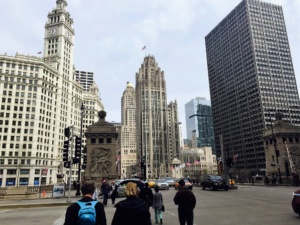This day in history: July 8, 2011: Bank of England makes famous “Race to Zero” speech about flash crash spoofers
We take a look back at “This day in history” within the world of FX taking a journey through annuls of time to look at the various groundbreaking developments that continue to take place in our fascinating industry.

The dubious but highly profitable practice of spoofing, which is defined as submitting a genuine order on one side of the book and multiple orders at different prices on the other side of the book to give the impression of substantial supply/demand, with a view to sucking in other orders to hit the genuine order. After the genuine order trades, the multiple orders on the other side are rapidly withdrawn, has been in the sights of law enforcers and regulators on both sides of the Atlantic over the last year.
With the advancement of technology, comes its abuse, and the among the highly sophisticated infrastructure that surrounds exchange traded derivatives which are executed on the technological leaders of Chicago, a few cases of extremely disruptive use of spoofing have recently emerged, causing crashes and creating market disarray, whilst generating millions for the perpetrators.
One particular high profile case of late was that of a federal grand jury in Chicago having indicted Panther Energy Trading and Michael Coscia, a high-frequency trader.
In 2011 Coscia placed spoofed orders through CME Group Inc. and European futures markets with profits of almost $1.6 million. Coscia was charged with six counts of spoofing with each count carrying a maximum sentence of ten years in prison and a maximum fine of one million dollars.
Not all of these cases invoke image of tuxedo-wearing, Rolex-touting James Bond-esque cads and bounders, however.
One of the largest spoofing cases in history was concluded recently, surrounding Navinder Singh Sarao, a 36 year old trader from the innocuous and bland West London borough of Hounslow.
From the anodyne beige post-war semi-detached house that his parents owned, Mr. Singh Sarao created a profit of £26 million, contributing heavily towards the 2010 flash crash which blighted Chicago’s electronic exchanges.
On this day in 2011, Andrew Haldane from the Bank of England spoke out on the event that had been dubbed ‘The Flash Crash’.
“The Flash Crash was a near miss. It taught us something important, if uncomfortable, about our state of knowledge of modern financial markets. Not just that it was imperfect, but that these imperfections may magnify, sending systemic shockwaves. Technology allows us to thin-slice time. But thinner technological slices may make for fatter market tails. Flash Crashes, like car crashes, may be more severe the greater the velocity. Physical catastrophes alert us to the costs of ignoring these events, of normalizing deviance.”
“There is nothing normal about recent deviations in financial markets. The race to zero may have contributed to those abnormalities, adding liquidity during a monsoon and absorbing it during a drought. This fattens tail risk. Understanding and correcting those tail events is a systemic issue. It may call for new rules of the road for trading. Grit in the wheels, like grit on the roads, could help forestall the next crash.” – Andrew Haldane, Bank of England, July 8, 2011
Among the charges leveled at Mr. Sarao some four years later he placed thousands of E-mini S&P 500 stock index futures contract which he planned on cancelling later.
These orders amounting to about “$200 million worth of bets that the market would fall” were “replaced or modified 19,000 times” before they were cancelled.included was the use of spoofing algorithms, in which just prior to the Flash Crash, which was a stock market crash that ran into a trillion dollars, in which the S&P 500, the Nasdaq 100, and the Russell 2000 all collapsed and rebounded with extraordinary velocity.
At the time, the Dow Jones Industrial Average experienced the biggest intraday point decline in its entire history, plunging 998.5 points (about 9%), most within minutes, only to recover a large part of the loss, with the CFTC having deemed it one of the most turbulent periods in the history of financial markets.
Mr. Sarao argued that he denounced high-frequency traders, some of them billion-dollar organisations, who mass manipulate the market by generating and retract numerous buy and sell orders every millisecond — which he witnessed when placing trades at the Chicago Mercantile Exchange (CME). He also claimed that he made his choices to buy and sell based on opportunity and intuition and did not consider himself to be one of the HFTs.
Last year, Mr. Sarao was charged with market manipulation and arrested, his assets having been seized. He faces extradition to the United States, as the CFTC has deemed that spoofing is unconstitutional and that a criminal prosecution can be upheld, with Mr. Sarao facing a stretch inside, with a diet of bread and jam on the menu for some years.
Featured image: Michigan Avenue, Chicago. Home to the world’s largest derivatives exchanges. Copyright FinanceFeeds









